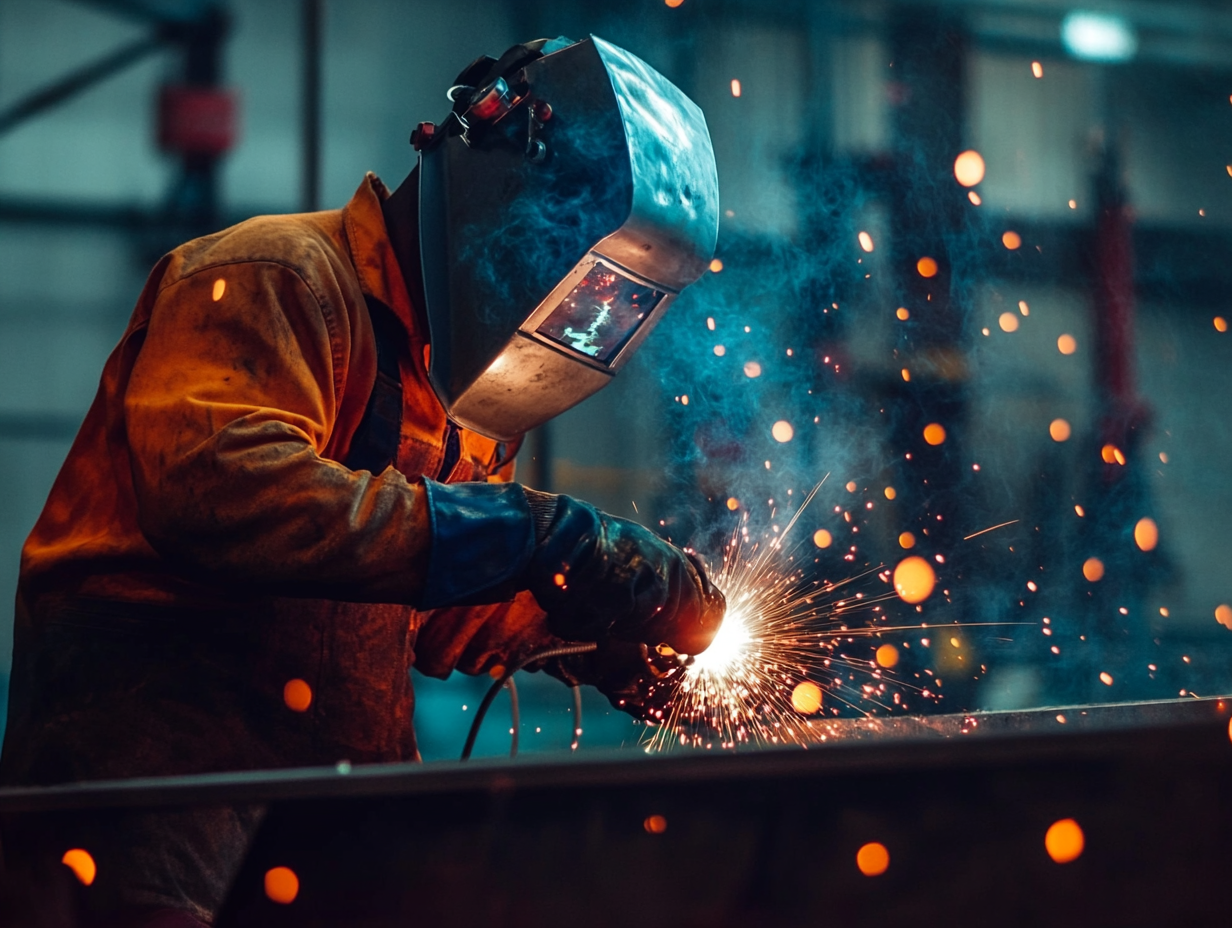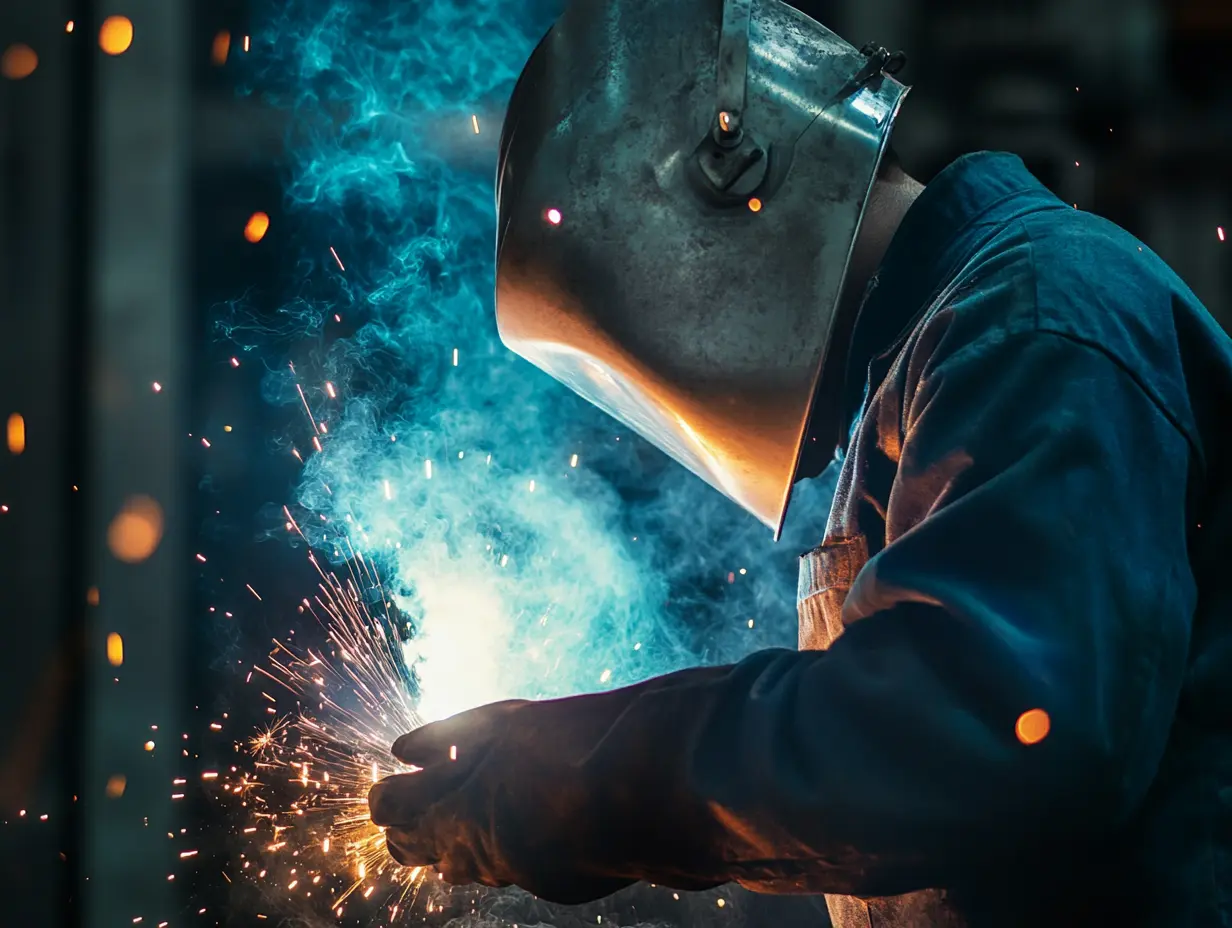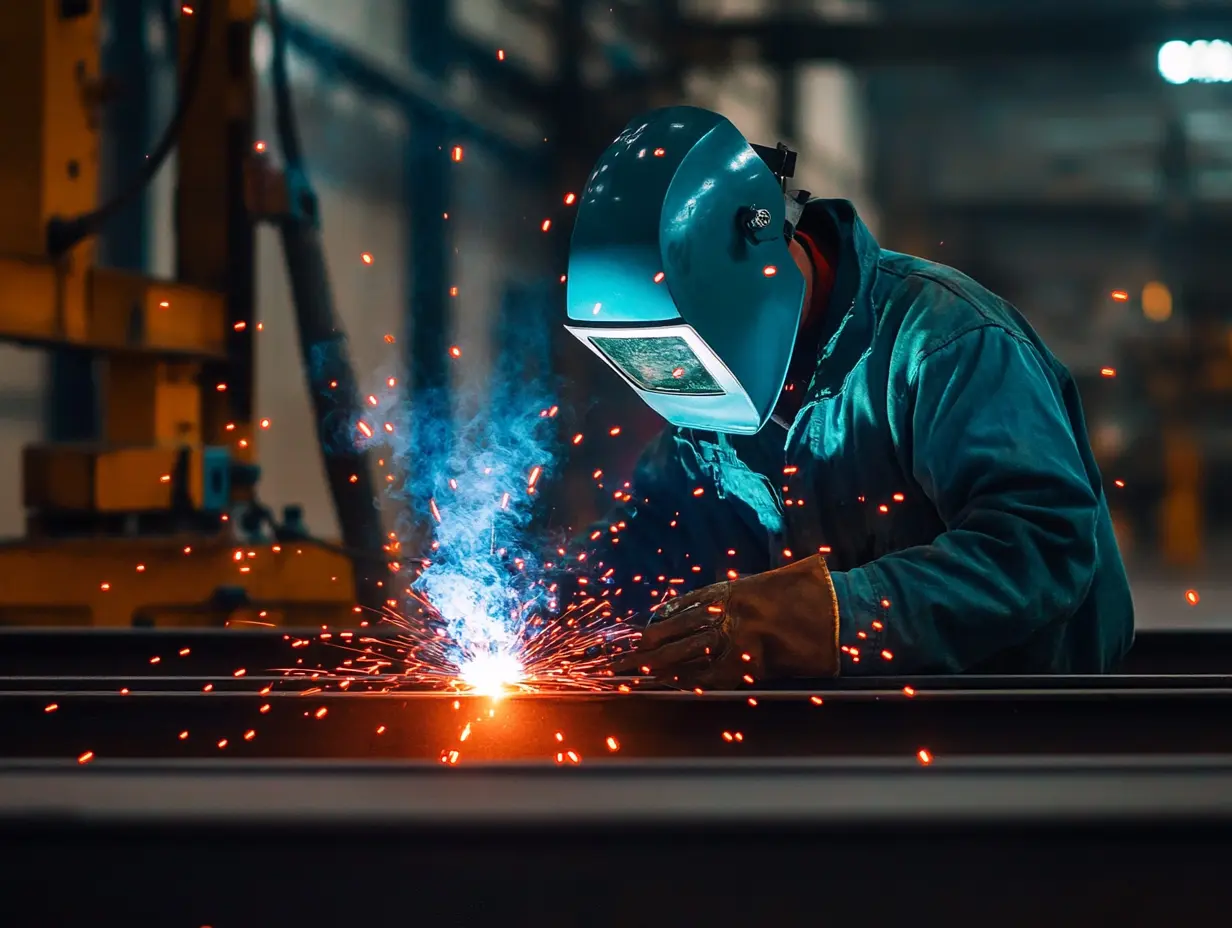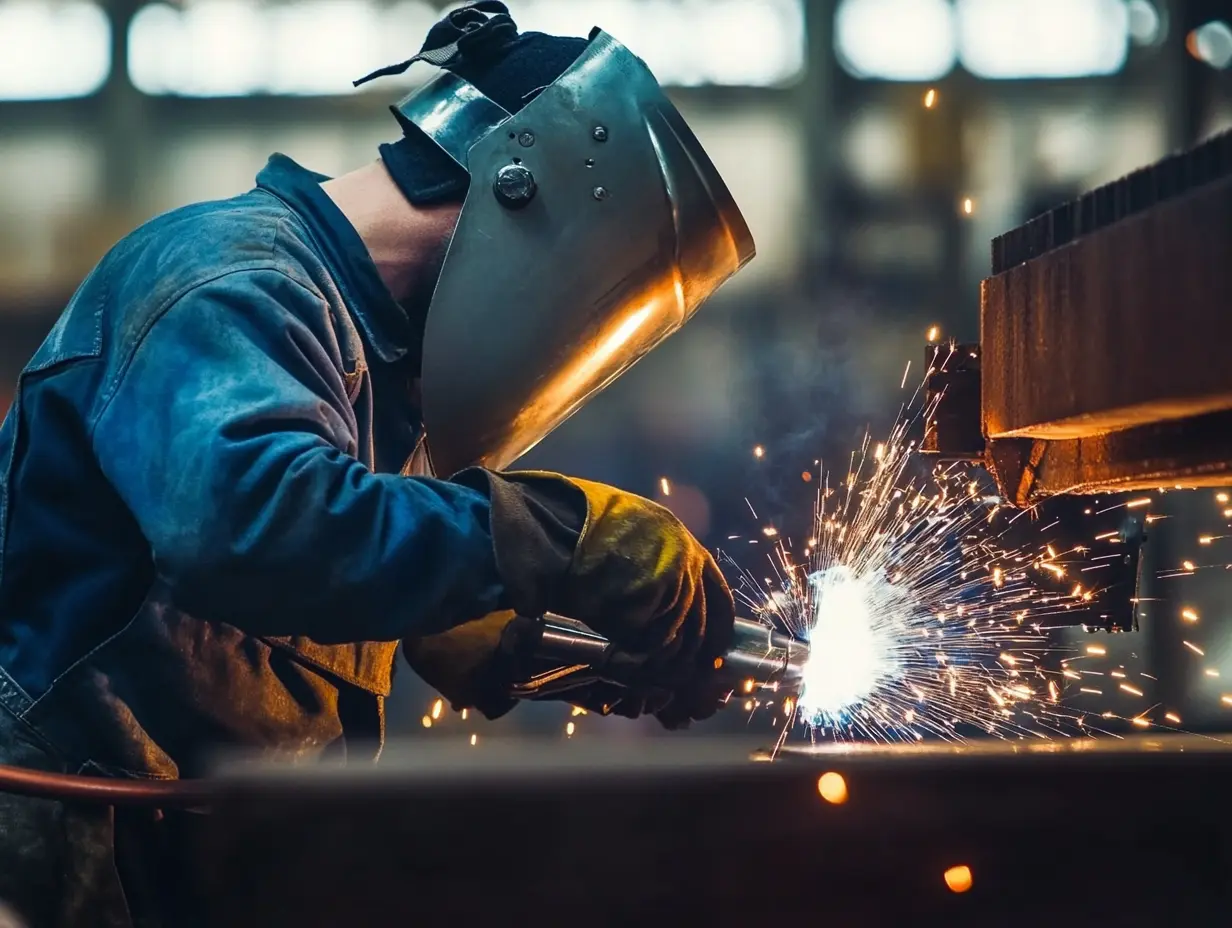On that front, welders are most prominent in manufacturing technology developments that will change the face of the industry. The pressure to innovate is the highest ever given the demand for increased efficiency, precision, and sustainability of production processes globally. This blog post will talk about what the innovations in welding equipment will be like in the future and touch upon upcoming technologies, automation, and green practices. The study will prepare global buyers to make informed and operative purchases therein.
More than that, Taizhou Yike Electromechanical Co., Ltd is proud to take the lead in producing advanced welding equipment to meet the different needs of their clients. Such are the times when new trends see the introduction of innovations: quality and reliability as the backbone of the welding machine. The guide offers global partnerships, targeting new and existing buyers to leverage future advancements in welding technology in a competitive landscape.

This sector of welding equipment is undergoing extraordinary technological changes. Nowadays, laser workstations dominate the scene by blending art and science, consequently improving precision and efficiency. These changes not only enhance the quality of welds but actually allow a lot of opportunities for greater automation and productivity. And as companies realize the urgent need for modernization of welding technology, demand will continue till the end for different modern welding solutions. Apart from technological progression, international trade in welding equipment becomes wider and wider. The world has really shrunk. Online platforms break down the geographical barriers-of facilitating international sales. The impending online auction slated to happen within the month is expected to pull buyers outside the country thus reflecting the industry's shift towards a more integrated economy. All in all, such developments signify a strong engine growth projected for the welding equipment market backed by continuous innovations which are anticipated to shape its strong future.

New welding technologies are carving out new opportunities within the industry with applications embracing productivity and efficiency as the true criteria. Advent of technologies such as laser workstations and automated welding processes provides professionals with opportunities to accelerate operations. Smart technology provides welding equipment with higher accuracy while eliminating some manual errors. This leads, in turn, to making improved-quality outputs.
Training and development could be helpful to this effect. New training centers are emerging to make sure welders will know how to properly operate the newest equipment for maximum performance. As the welding environment changes, people have to stay up-to-date with new developments to remain competitive. The outlook of welding is exceptionally bright, offering infinite opportunities for integration and developmental work on the world market.

User-friendly enhancement utilities are increasingly being featured in the latest welding gadgets, which focus on usability and efficiency. This is a reflection of the modern wave that has swept through many other industries towards making tools much easier and accessible for anyone to handle. From improved digital interface in a welding machine to ergonomically designed machines, all these innovations culminate towards not only making operations easier but also a safer working environment because of reduced physical strain on the operators.
Increasingly, entries indicate costs incurred on training and support as states integrate smart technologies into welding machinery. Some of these facilities house welding innovations and training resources so that welders can get training in the new tools and techniques. This education aims to notify end users about how they can maximize the use of new, advanced features, which would increase productivity and quality in their projects. As the industry progresses, user-friendliness remains a major feature in welding innovations considering the ease of selection for global buyers.

Sustainability in welding equipment manufacturing has become much more relevant in an environmentally conscious market. Automation and intelligent machinery, as showcased in recent exhibitions, bring forth manufacturers practicing carbon footprint reduction with efficiency enhancement. With advanced welding technologies in demand, buyers would much rather purchase products from vendors whose production methods are based on sustainability.
These different innovations in welding equipment emphasize not just performance but also sustainability factors. The establishment of training centers enunciates the importance of training manpower to operate systems that are environmentally friendly. This dual concentration on enhancing productivity and green initiatives makes welding an advanced industry poised to address the challenges of a sustainable future.
The welding world is seeing unprecedented advancements in safety technologies, which is considered to be vital in protecting workers and future productivity. New training centers are now being set up so that welders can learn how to use advanced equipment while keeping safety a priority. Training programs take users through today's developments so that they can operate machines effectively and address hazards.
Negligible developments have risen in welding technology, including automation and artificial intelligence, which act to ensure welding processes' safety and efficiency. The industry is indeed on the path of continuous innovation, providing greater productivity and safety from accidents, which makes it extremely crucial that all buyers watch these developments on a global level.
The welding industry is under-changing, and such change is inevitable, given the challenges it has with future technology and skilled shortages as well as the increasing pressure for sustainability within the industry itself. As professional B2B buyers prepare for these major events, such as the Global Sources Industrial Supplies Online Show, they can find out about the best inspiring solutions for welding to tackle the challenges head-on.
New training hubs are important for giving welders the necessary skills to operate the advanced kit. Training focused on increasing productivity is vital towards equipping the workforce to meet changing demands in the industry. As the global hardware market becomes larger and larger, the need for informing buyers about that innovation and trend for purchasing decisions becomes larger and larger.
The global buyers have to be mindful of the foremost considerations when purchasing their equipment, With the recent opening of a welding innovation and training hub, emphasis has been placed on training for enhanced productivity. Prospective buyers must realize that in a fast-paced environment, continual training and technology standards hold the competitive edge.
Furthermore, the introduction of online auction platforms across the world is another venue buyers can employ to obtain an expanded range of equipment, unconstrained by distance. This not only enhances the competition but enables buyers to maximize their options for getting the best value for their money when looking for welding machines. Buyers, therefore, will be better poised to make knowledgeable buying decisions based on trends and innovations in the global marketplace.
Automation and robotics have been bringing forth waves across the welding industry, defining a new path through which more effective and precision approaches are achieved. With an ever-changing modern market, there comes an intelligent integration of machines which allow for higher productivity and lowered operational costs within the profession. The specialisation in smart manufacturing is defined by industrial automations in welding equipment, which creates a realm for understanding how technology elevates the quality and speed involved in the production processes.
Innovation Hubs are appearing for the sake of providing training and further development in these advanced technologies for a workforce that is equipped to handle better welding systems. The buyers themselves have to keep pace with the latest trends and technology to make the most of their operations because of this sweetener which are growing on what the global demand would be for such innovations. Not only does this render welds of higher quality, but it also thrusts enterprises into higher innovation capacities and competitive leverage in the marketplace.
Transformation through automation and robotics is revolutionizing the welding industry along with an era that defines effectiveness and precision. The metamorphosis brought about by modern markets is described in terms of how intelligent machinery will be integrated to contribute towards high productivity at reduced operational costs for welders. One aspect of smart manufacturing and automation in welding equipment is quite simply how technology improves quality and speed in production processes.
Innovation Hubs are appearing for the sake of providing training and further development in these advanced technologies in their aspects for a workforce that is equipped to handle better systems of welding. The buyers themselves have to keep pace with the latest trends and technology to make the most of their operations due to that sweetener that is growing on what the global demand would be such innovations. Not only are they rendering welds of a much higher quality, but they also thrust enterprises into higher innovation capacities and competitive leverage available in the marketplace.
On the one hand, the market for sectors has undergone a great deal of transformation, in light of B2B buyers' demands for modern, advanced industrial supplies. Innovations shown at international exhibitions have been emphasizing the positive trend toward automation and productivity. Training institutes are being developed by industry leaders to upskill welders regionally, which in turn will allow for nationally increased adoption of up-to-date equipment.
The competition scenario of global welding equipment suppliers shows active participation toward innovation. Since a remarkable rise in the market is anticipated anytime soon, therefore, the suppliers are trying to employ the latest available technologies to catch attention and charm international users. New auction platforms and events being created allow for further access to several pieces of equipment and facilitate buyers' choice in considering what tools to procure.
With the inexorable expansion of the global hardware market, opportunities for investment in advanced welding solutions are bound to increase. In the year 2023, the market was worth $121.34 billion and is anticipated to grow to $164.21 billion by the year 2027, at a CAGR of 7.9 percent. For these reasons, there have been potential prospects for buyers who procure high-tech welding tools that raise productivity and efficiency.
There are now innovative types of training initiatives, such as new welding innovation hubs, all geared to upskill welders in the use of the latest technology. These advances are not meant just for the individual level but, more importantly, for the industry as a whole. Investing in advanced welding solutions is only strategic for buyers considering the industry's move toward smart manufacturing and greener business practices, which will require input from advanced welding technology to remain competitive and meet the changing demands.
Key advancements include the rise of laser workstations that enhance precision and efficiency, as well as increased automation and productivity options.
The global marketplace is becoming more accessible due to online platforms that facilitate global sales and enable online auctions, breaking down geographical barriers.
Ongoing education is crucial for buyers to stay competitive in a rapidly changing market, as it helps them adapt to new technologies and innovations.
Online auction platforms provide valuable resources for accessing a wider range of equipment, allowing buyers to find the best deals without geographical constraints.
Future challenges include technological advancements, skilled labor shortages, and increasing sustainability demands.
Training hubs help equip welders with necessary skills to use advanced equipment effectively, enhancing productivity and adaptability to industry changes.
Buyers should prioritize technological upgrades, ongoing training, and staying informed about global trends to make informed purchasing decisions.
Such events provide an opportunity for professional buyers to explore innovative welding solutions that address the industry's future challenges.
Technological innovations improve the quality of welds by increasing precision and efficiency, which enhances overall welding outcomes.
The outlook for the welding equipment market is robust, with ongoing innovations expected to significantly shape its future landscape.

